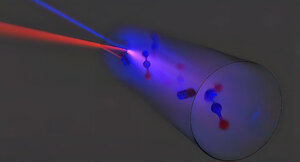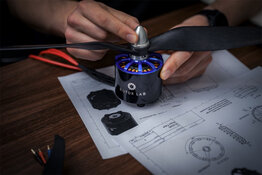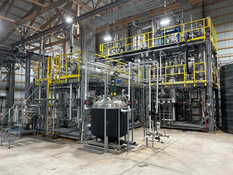Unusual Machines Inc. (UMAC:NYSEAMERICAN) decided to terminate its pending deal to acquire New York-based drone software firm Aloft and instead acquire Rotor Lab in Australia, a provider of high-performance commercial and defense drone motors, reported Litchfield Hills Research Analyst Barry Sine in a June 16 research note.
"We view this deal very positively," Sine wrote. It is "another strong signal that UMAC's management is delivering on the strategy outlined at initial public offering: focus on core hardware, vertically integrate, scale manufacturing and target the emerging wave of institutional drone demand."
137% Potential Uplift
Litchfield maintained its $20 per share price target on the U.S.-based drone and drone parts manufacturer, trading at the time of Sine's report at about $8.45 per share, noted the analyst. The target implies a possible gain for investors of 137%.
Unusual Machines is a Buy.
Also at the time of Sine's report, the company has 25 million shares outstanding. Its market cap is $209.8 million. Its 52-week range is $1.13–23.62 per share.
Deal at a Glance
For the acquisition of Rotor Lab, Unusual Machines is to issue $4 million of stock up front. As a performance-driven incentive, if Rotor Lab triples its revenue to $3M over two years, Unusual Machines will issue it $3M more worth of stock.
As far as regulatory approval of the proposed deal, only clearance from Australia's Foreign Investment Review Board is needed. Litchfield does not anticipate any problems in this regard, Sine wrote.
More Than a Tuck In
The downsides to the deal with Aloft, Sine pointed out, were that closing it was delayed and the pairing of the two companies was not as strategic as the Unusual Machines and Rotor Lab combination.
Rotor Lab fits nicely with Unusual Machines' new business focus, supplying components to commercial, public safety and defense drone manufacturers, Sine wrote. Rotor Lab's team, technology and existing collaboration are directly aligned with UMAC's vertical integration strategy and product roadmap, and would accelerate the latter by about three to four months. Already Rotor Lab is a partner to Unusual Machines, the two companies having collaborated on next-generation motor designs. Unusual Machines Chief Executive Officer Allan Evans emphasized that his company's acquisition of Rotor Lab is not merely a tuck in.
Transitional Steps Taken
To facilitate the shift away from the first-person view drone racing market, Unusual Machines launched a proprietary line of drone components, nearly all that make up a drone. The manufacturer hired a senior operations executive who worked at Tesla when it scaled production significantly.
The company leased space for a manufacturing facility near its headquarters in Orlando, Fla., and ordered production and materials for it.
Planned Integrations
Additionally, UMAC plans to use its manufacturing capacity to supply its own retail business, Rotor Riot, improving gross margins through vertical integration.
"While initial production has been consumed by early-stage testing from prospective large customers, we expect internal supply synergies and margin improvements to begin materializing by Q3/26 when Rotor Riot begins sourcing internal UMAC components," Sine wrote.
Rotor Lab's existing facility in Canberra will stay operational, providing needed redundancy, particularly in light of Orlando's hurricane risk, and therefore global customer assurance.
Upcoming Catalysts
Sine relayed that soon Unusual Machines will hire and train about 10–15 new workers. It will start production in September and reach full one-shift capacity, about 50,000 drone motors per month, by January. Also by next year, it will have the facility fully automated.
At current average selling prices of $50 per motor, this equates to about $30M in annual revenue. Were a second shift to be added, this would double revenue to about $60M, significantly more than Litchfield's current 2026 estimate of $13.5M in total drone component revenue.
Sine noted that Unusual Machines still needs orders to fill this production capacity. Its pipeline depends on the U.S. Congress passing the fiscal year 2026 Department of Defense budget followed by orders flowing from top-tier drone integrators such as UMAC's former parent company Red Cat Holdings Ltd. (RCAT:NASDAQ) to component suppliers like Unusual Machines.
"While timing is uncertain, we believe the demand environment, particularly from defense, is a matter of 'when,' not 'if,'" wrote Sine. "We remain confident in the team's execution and long-term vision."
| Want to be the first to know about interesting Technology investment ideas? Sign up to receive the FREE Streetwise Reports' newsletter. | Subscribe |






































